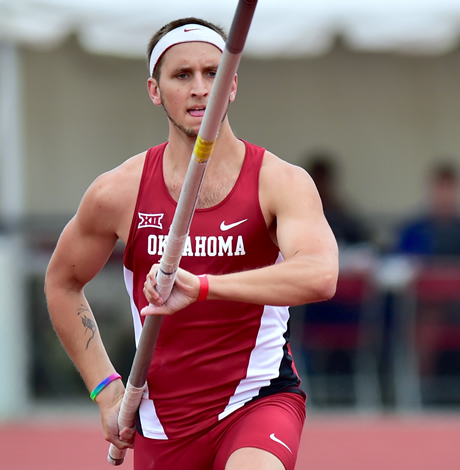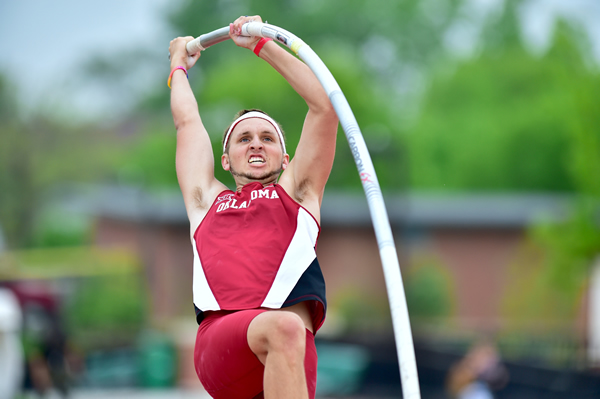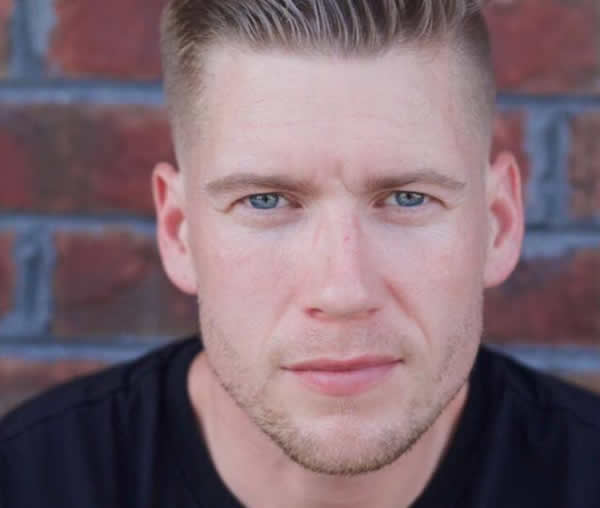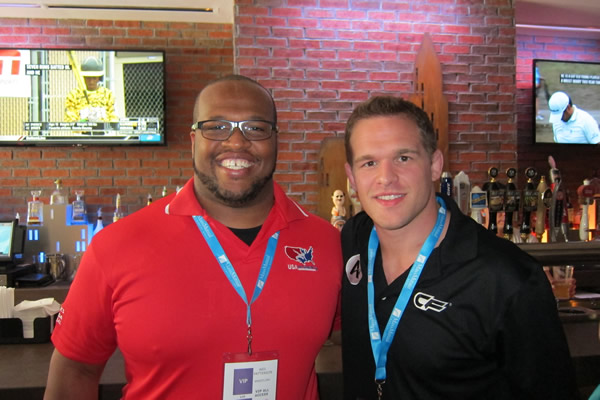Sports
Gay athletes talk religion and faith
Church teachings complicate coming out process for many


Tanner Williams (Photo courtesy of Oklahoma University Athletics)
There have been a vast number of coming out stories told recently that share a common thread that it isn’t easy to accept your sexual identity when it is not considered “normal.”
The self-acceptance process is generally filled with shame, insecurities, fear and often depression. Homophobia is exactly what you don’t want to experience when you are dealing with finding your true self.
There are other identities that you are not born with, those that are chosen, that also come with homophobia. Religion and sports can be extremely homophobic environments that can add even more emotion to the inner struggle of growing up gay.
It seems like an impossible bridge to gap. Why not just walk away from the two you can choose to walk away from, religion and sports?
Meet three men who are gay, played sports and grew up with religion. All three of them say it is not religion that bridged the three struggles, but rather their individual faith.
When you speak to Josh Sanders, there is a sense of calm that emanates from him. He describes his relationship with religion as being vertical and horizontal and more of a personal journey.
“The vertical is the relationship between me and God and the horizontal is me and the eyes of other people,” says Sanders. “I should never look at myself through the eyes of others.”

Josh Sanders (Photo courtesy of Charyln)
Sanders grew up playing basketball and intended to walk onto the team at Virginia Wesleyan but ended up dropping out to address his inner struggles. He began coaching a local high school team and enrolled at James Madison University. His path led to him to work with various Christian sports ministries and he became the athletic director at a Christian sports camp. After surviving six months of conversion therapy, he came out to his employer only to be told he couldn’t return to the sports camp position that he had held for six years because of his sexuality.
“There is an exclusive tone to the intersection between religion and sexuality. It is the church versus the gay community,” Sanders says. “I don’t separate those two parts of myself. I can be both and there is nothing exclusive about that. If you can’t acknowledge that I can be both, then you are not seeing all of me.”
Sanders, who is living in the Virginia Beach area, has been getting involved again with sports as director of external engagement for GO! Athletes. He is also involved in its extension project, GO! Faith, which provides an inclusive space for young LGBT athletes, coaches and administrators of faith to come together for fellowship and encouragement.
“Biblical literalism is alive today but I think context is everything. It makes no sense to apply those writings to life today,” says Sanders. “The Bible leads the direction of my faith, but it is my own personal interpretation.”
Sanders attends a large evangelical church on occasion that is not LGBT friendly. He says he goes there because of the loving friendships he has made with some of its members.
“We [the LGBT community] are the ones that need to take the initiative to get people from the church to step outside their own experience and actually get to know us,” Sanders says. “Once that happens, there can be change.”
Tanner Williams was so shy as a kid that he was afraid to speak to people. He would wait outside after track practice in hopes of getting through a day without being called a fag. Because of his Southern Baptist upbringing in Ardmore, Okla., he spent a lot of time in those isolated moments wondering why he was gay.
In the sixth grade, his coach got him into pole vaulting and within two years, he won a national championship and followed that up with two state championships in high school.
“I was a really religious kid and I put all my trust in God and pole vaulting,” says Williams. “I had no friends and my time was spent praying and talking to God.”
During his freshman year at Oklahoma University, the mother of a girl he had been formerly promised to for marriage, began stalking Williams through a fake Twitter and Facebook account, threatening to out him, he says. A police report was filed and security was increased at the Big 12 Championships in Waco, Texas, where Williams was competing in the pole vault for the Sooners.
“I grew up with people telling me it’s a choice to be gay and I fell for it,” Williams says. “When things like harassment happen, it just reinforces the feeling that there is something wrong with you.”
Williams began coming out to friends two years ago at age 19 and is now only occasionally attending church. He says he feels sorry for members of organized religion who propagate homophobia because they pick and choose what they believe in the Bible.
“They don’t study the bible like I do and they don’t look at it like I do.” says Williams. “I study it and find the content for me, what God wants for me.”
Williams is coming up on his senior year at Oklahoma University and will be graduating with a degree in business management and nursing. Last year at age 20 he married his partner, Scott Williams and he is looking forward to what the future has to offer.
“I love competing but I am ready to move on,” Williams says. “I will be the only senior on the Sooners track team this year so I will be stepping forward as more of a leader. I guess that’s my management side coming out.”
When Akil Patterson was playing football for the University of Maryland, his mom was commuting from Frederick, Md., to get her master’s degree and used to pick her son up for church. He always felt he wasn’t being honest because the black church he attended was adamantly opposed to homosexuality. He sometimes brought his teammates along so he would feel more comfortable. It was during one of those rides to church that Patterson came out to his mom.

Akil Patterson pictured with Washington Blade guest editor Hudson Taylor. (Photo by Kevin Majoros)
“I was struggling during my coming out process and I turned to my faith,” says Patterson. “God doesn’t get you out of things; he just helps you get through them.”
After his football career ended, Patterson returned to the University of Maryland campus and became involved with coaching for their wrestling programs. The Terrapin Wrestling Club is also a regional Olympic training center for USA Wrestling and Patterson began competing in Greco-Roman wrestling.
Recently retired from sports, Patterson still attends church and says that everything a person needs is in the Bible and subject to one’s own interpretation. He likes going to church because of the sense of camaraderie and fellowship and is attending a more affirming church now.
“When that black pastor says that being gay is wrong, everyone starts screaming and it creates a wolf pack mentality,” Patterson says. “If the pastors would stop talking about it, people in the black community would follow. They will defend you and look out for you, but they don’t want to hear about that part of you.”
Patterson said that organized religion is directed at a certain type of people, those who are not secure in their faith.
“Those people are not rooted and don’t understand how the book is translated. Too many of them think that faith is what you learned in church,” Patterson says. “The church is religion but faith is beyond that. I am a man of faith.”

More than a dozen LGBTQ athletes won medals at the Milan Cortina Winter Olympics that ended on Sunday.
Cayla Barnes, Hilary Knight, and Alex Carpenter are LGBTQ members of the U.S. women’s hockey team that won a gold medal after they defeated Canada in overtime. Knight the day before the Feb. 19 match proposed to her girlfriend, Brittany Bowe, an Olympic speed skater.
French ice dancer Guillaume Cizeron, who is gay, and his partner Laurence Fournier Beaudry won gold. American alpine skier Breezy Johnson, who is bisexual, won gold in the women’s downhill. Amber Glenn, who identifies as bisexual and pansexual, was part of the American figure skating team that won gold in the team event.
Swiss freestyle skier Mathilde Gremaud, who is in a relationship with Vali Höll, an Austrian mountain biker, won gold in women’s freeski slopestyle.
Bruce Mouat, who is the captain of the British curling team that won a silver medal, is gay. Six members of the Canadian women’s hockey team — Emily Clark, Erin Ambrose, Emerance Maschmeyer, Brianne Jenner, Laura Stacey, and Marie-Philip Poulin — that won silver are LGBTQ.
Swedish freestyle skier Sandra Naeslund, who is a lesbian, won a bronze medal in ski cross.
Belgian speed skater Tineke den Dulk, who is bisexual, was part of her country’s mixed 2000-meter relay that won bronze. Canadian ice dancer Paul Poirier, who is gay, and his partner, Piper Gilles, won bronze.
Laura Zimmermann, who is queer, is a member of the Swiss women’s hockey team that won bronze when they defeated Sweden.
Outsports.com notes all of the LGBTQ Olympians who competed at the games and who medaled.
Sports
US wins Olympic gold medal in women’s hockey
Team captain Hilary Knight proposed to girlfriend on Wednesday

The U.S. women’s hockey team on Thursday won a gold medal at the Milan Cortina Winter Olympics.
Team USA defeated Canada 2-1 in overtime. The game took place a day after Team USA captain Hilary Knight proposed to her girlfriend, Brittany Bowe, an Olympic speed skater.
Cayla Barnes and Alex Carpenter — Knight’s teammates — are also LGBTQ. They are among the more than 40 openly LGBTQ athletes who are competing in the games.
The Olympics will end on Sunday.
Sports
Attitude! French ice dancers nail ‘Vogue’ routine
Cizeron and Fournier Beaudry strike a pose in memorable Olympics performance

Madonna’s presence is being felt at the Olympic Games in Italy.
Guillaume Cizeron and his rhythm ice dancing partner Laurence Fournier Beaudry of France performed a flawless skate to Madonna’s “Vogue” and “Rescue Me” on Monday.
The duo scored an impressive 90.18 for their effort, the best score of the night.
“We’ve been working hard the whole season to get over 90, so it was nice to see the score on the screen,” Fournier Beaudry told Olympics.com. “But first of all, just coming out off the ice, we were very happy about what we delivered and the pleasure we had out there. With the energy of the crowd, it was really amazing.”
Watch the routine on YouTube here.




















